Find Help
More Items From Ergsy search
-
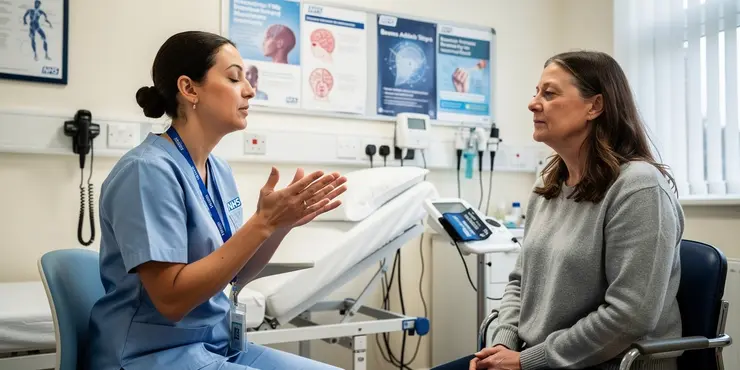
Long COVID - Managing Breathlessness
Relevance: 100%
-
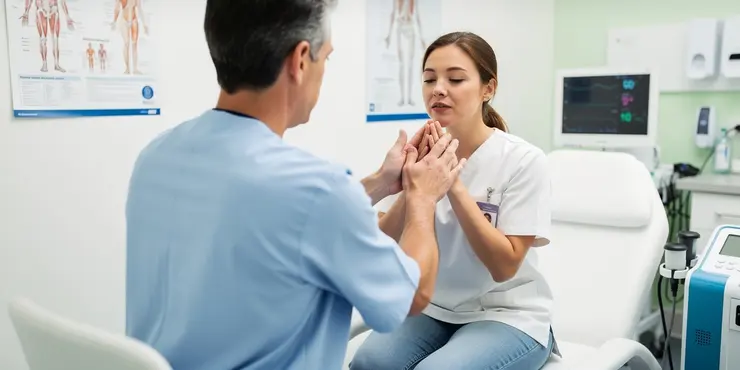
How to retrain your breathing | Part 2 | Asthma, long covid or breathlessness
Relevance: 70%
-
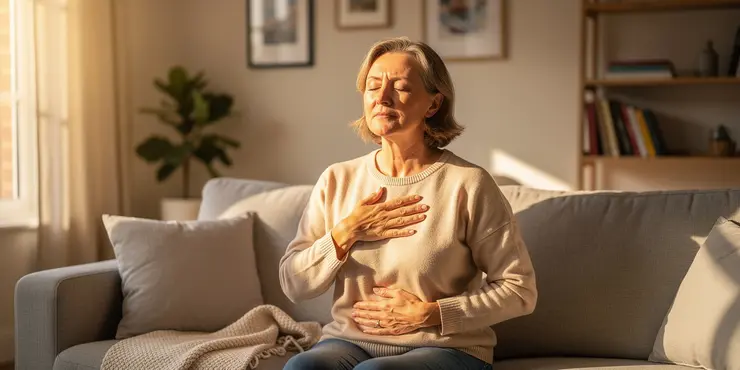
Breathlessness after COVID-19 - helpful techniques
Relevance: 61%
-
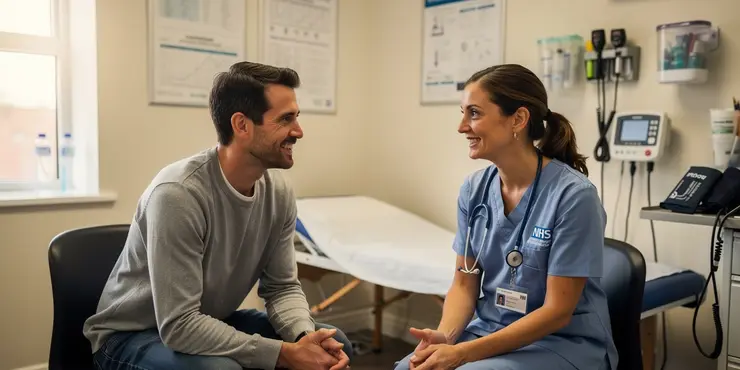
Long Covid
Relevance: 53%
-
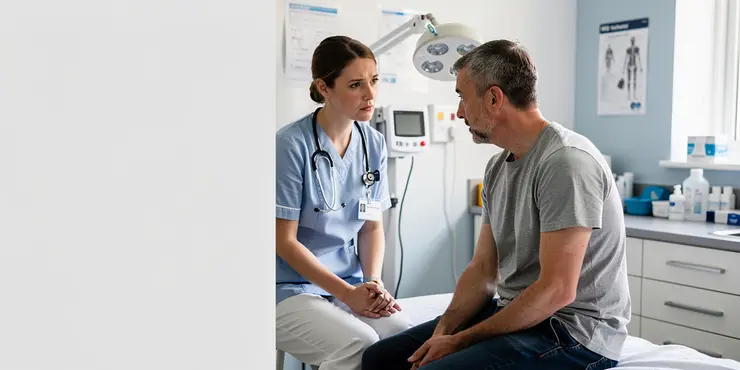
What are the symptoms of long covid?
Relevance: 47%
-
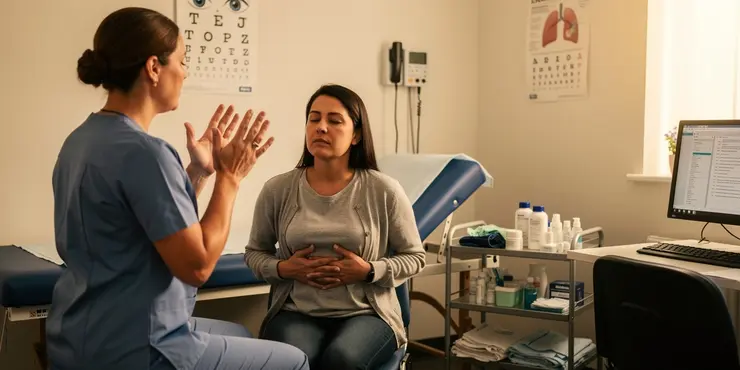
Tips for breathlessness | NHS
Relevance: 45%
-
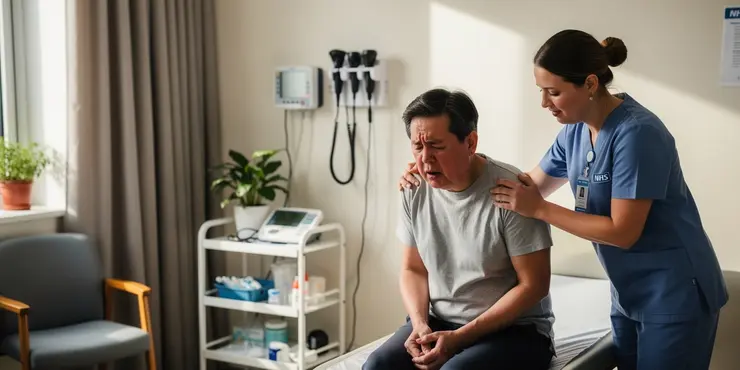
Positioning for Breathless Patient
Relevance: 44%
-
New Research Sheds Light on Long Covid Effects
Relevance: 36%
-
Can air physiotherapy help with COVID-19 recovery?
Relevance: 34%
-
What are the benefits of getting a COVID jab?
Relevance: 31%
-
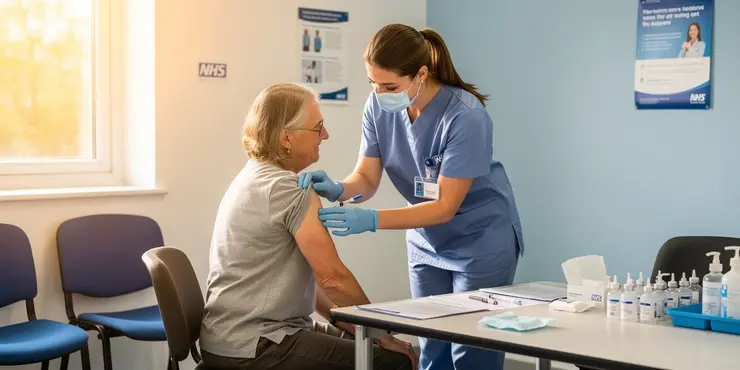
How long does immunity last after getting the COVID jab?
Relevance: 31%
-
Can the COVID jab give me COVID-19?
Relevance: 29%
-
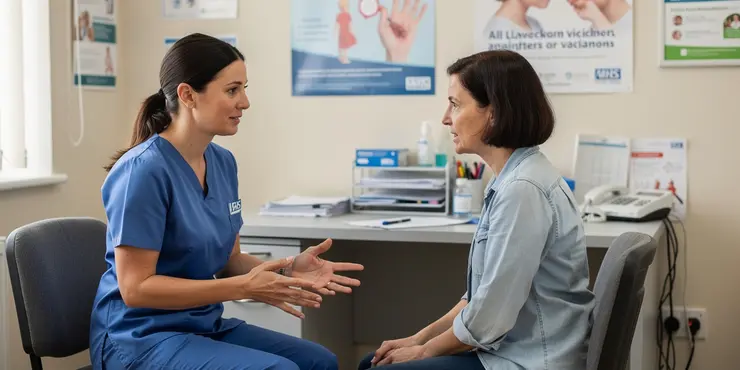
Are there any long-term side effects of the COVID jab?
Relevance: 29%
-
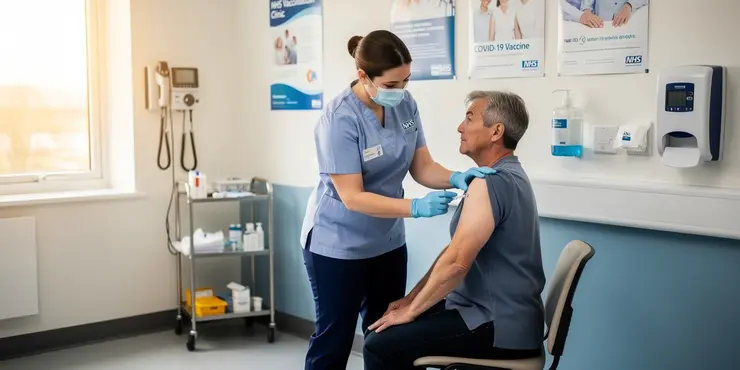
Are COVID jabs safe?
Relevance: 28%
-
How do COVID jabs work?
Relevance: 27%
-
Should I get a COVID jab?
Relevance: 26%
-
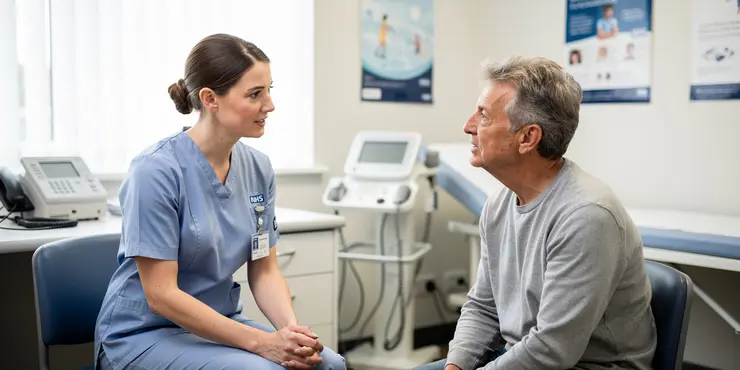
What sources should I consult for information on Covid-19?
Relevance: 26%
-
New Covid Variant Strains
Relevance: 26%
-
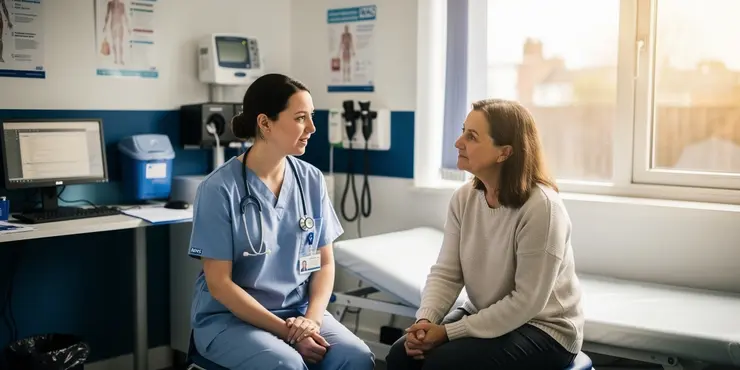
Should I get vaccinated if I already had COVID-19?
Relevance: 26%
-
What is a COVID-19 variant?
Relevance: 26%
-
What is the Covid-19 Stratus variant?
Relevance: 25%
-
How are COVID-19 variants detected?
Relevance: 25%
-
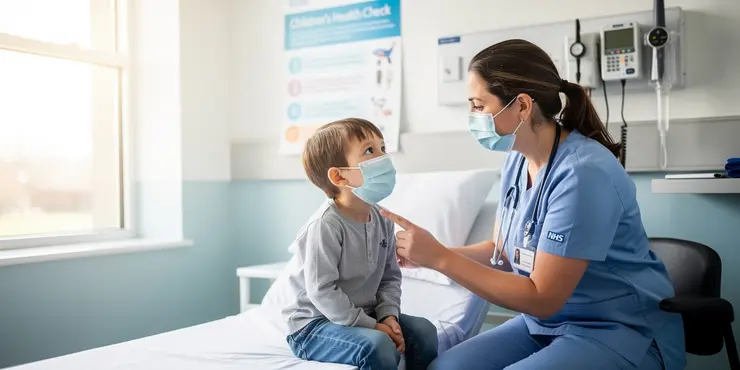
Are children more affected by new variants of COVID?
Relevance: 25%
-
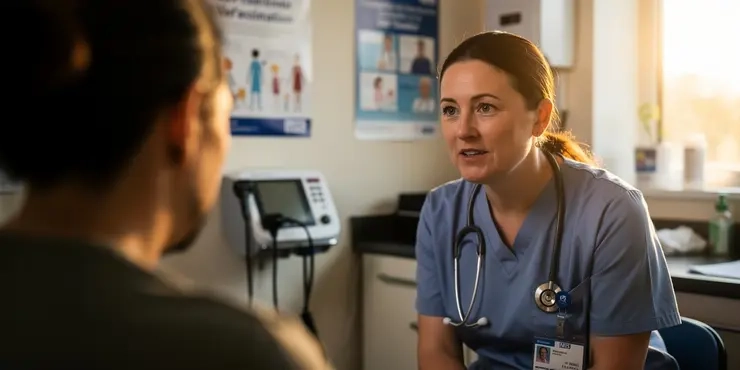
Does the COVID jab affect fertility?
Relevance: 25%
-
Who is eligible to receive the COVID jab?
Relevance: 25%
-
Does the flu vaccine protect against COVID-19?
Relevance: 25%
-

Can I get the COVID jab if I have allergies?
Relevance: 25%
-
Can I get the COVID jab if I am pregnant or breastfeeding?
Relevance: 24%
-
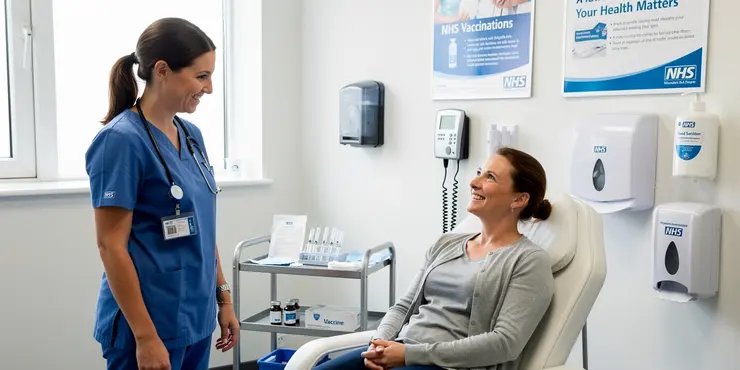
How can I get a COVID jab appointment?
Relevance: 24%
-

Will getting the flu jab protect me against COVID-19?
Relevance: 24%
-
How do COVID-19 variants arise?
Relevance: 24%
-
Do new variants affect COVID-19 testing?
Relevance: 24%
-
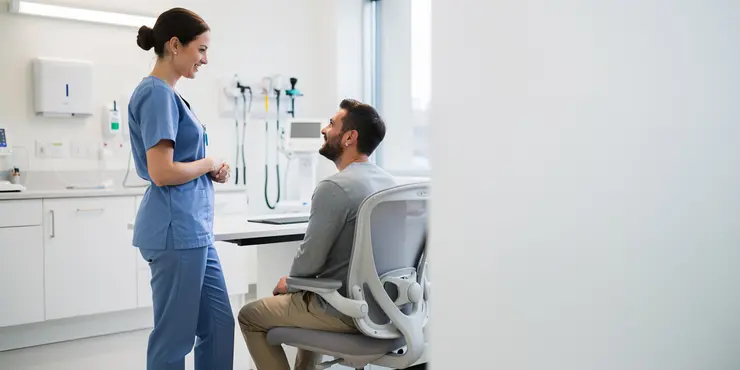
What are the Nimbus and Stratus variants of Covid?
Relevance: 24%
-
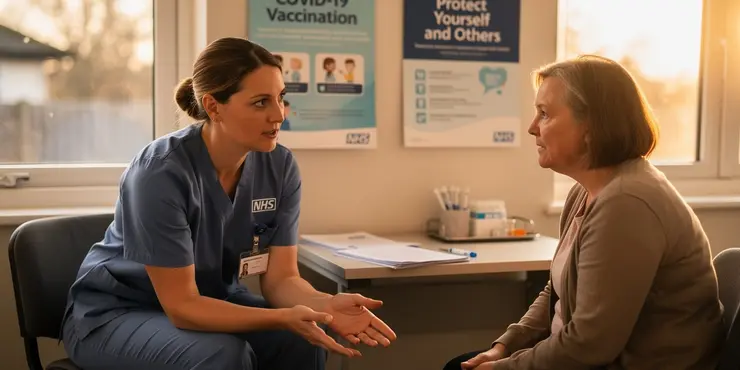
Will I experience side effects from the COVID jab?
Relevance: 24%
-

Can I receive other vaccines at the same time as the COVID jab?
Relevance: 24%
-
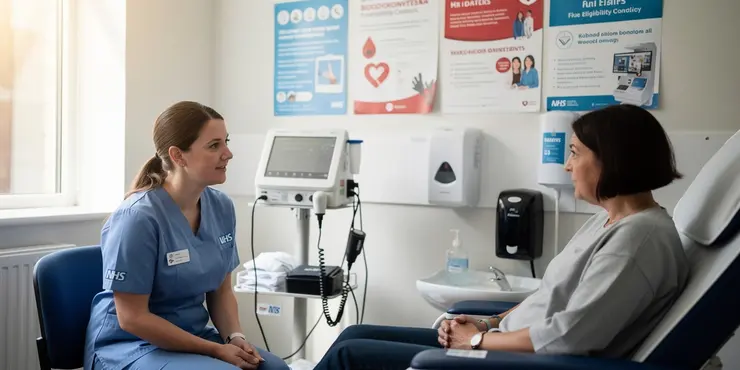
Can COVID-19 be transmitted through blood transfusions?
Relevance: 23%
-
Does travel insurance cover COVID-19 related issues?
Relevance: 23%
-
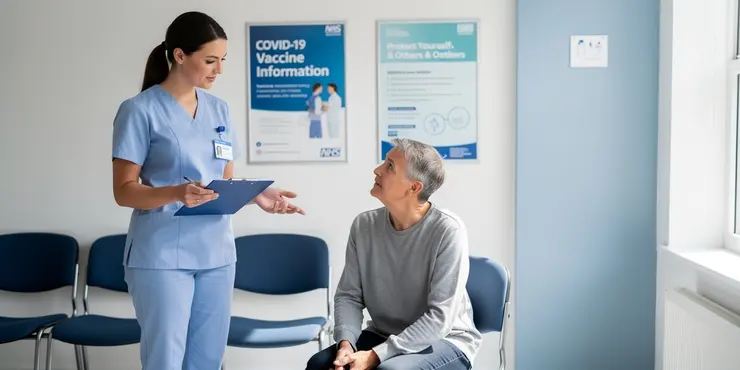
What should I do if I experience side effects after the COVID jab?
Relevance: 23%
-
What are the COVID-19 travel restrictions for traveling to Spain?
Relevance: 23%
-
Where can I learn about real Covid-19 variants?
Relevance: 22%
Long COVID - Managing Breathlessness
Understanding Breathlessness in Long COVID
Breathlessness, or dyspnea, is a common symptom experienced by individuals suffering from Long COVID, also referred to as post-COVID-19 syndrome. In the United Kingdom, numerous individuals are facing prolonged symptoms even weeks or months after the initial COVID-19 infection has subsided. This breathlessness can be distressing and may significantly impact one's quality of life. Understanding the underlying causes and learning how to manage this symptom is crucial for recovery.
Practical Strategies to Manage Breathlessness
There are several strategies that can help manage breathlessness for those living with Long COVID. Here are some practical tips:
- Pacing Activities: Gradually increase activity levels. Avoid overexerting yourself and allow ample rest periods throughout the day.
- Breathing Techniques: Practice diaphragmatic breathing or pursed-lip breathing. These techniques can help improve ventilation and reduce breathlessness.
- Posture: Maintain an upright posture while sitting and use pillows for support. An elevated head and chest position can help make breathing easier.
- Hydration: Staying well-hydrated helps to keep the airways clear and can reduce the sensation of breathlessness.
- Avoid Triggers: Identify and avoid factors that exacerbate breathlessness, such as allergens, pollutants, and smoke.
Seeking Professional Help
If breathlessness persists or worsens, it is essential to seek medical advice. In the UK, the NHS offers resources and support for individuals experiencing Long COVID symptoms. A healthcare professional may recommend pulmonary rehabilitation, which includes exercise training, education, and breathing techniques specifically designed to improve lung function and relieve breathlessness.
Emotional and Mental Well-being
Dealing with breathlessness can also affect mental health. Anxiety and stress can exacerbate the sensation of breathlessness. It is beneficial to practice relaxation techniques such as mindfulness, meditation, or gentle yoga. Connecting with support groups, either online or in-person, can also provide emotional comfort and practical tips from others experiencing similar challenges.
Conclusion
Managing breathlessness associated with Long COVID requires a combination of practical strategies, professional help, and attention to mental well-being. By understanding the nature of breathlessness and utilizing available resources, individuals can improve their quality of life and work towards a better recovery.
Long COVID - Managing Breathlessness
Understanding Breathlessness in Long COVID
Breathlessness means finding it hard to breathe. It is a common problem for people with Long COVID, also called post-COVID-19 syndrome. Many people in the UK have symptoms for weeks or months after having COVID-19. Breathlessness can make people worried, and it can affect how they live their life. Knowing why it happens and how to make it better is very important.
Practical Strategies to Manage Breathlessness
There are ways to help with breathlessness if you have Long COVID. Here are some simple ideas:
- Pacing Activities: Do things slowly and take breaks. Don't try to do too much at once.
- Breathing Techniques: Try breathing using your belly or through pursed lips. This can help you breathe better.
- Posture: Sit up straight and use pillows for support. Keeping your head and chest up can make breathing easier.
- Hydration: Drink enough water to keep your throat and airways clear.
- Avoid Triggers: Stay away from things that make you more breathless, like smoke or strong smells.
Seeking Professional Help
If you still find it hard to breathe, go to a doctor. In the UK, the NHS can help people with Long COVID. A doctor might suggest special exercises and breathing techniques to help your lungs work better.
Emotional and Mental Well-being
Having trouble breathing can make you feel worried or stressed. This can make breathlessness worse. Try to relax by doing meditation, mindfulness, or gentle yoga. Talking to others who have the same issues, either online or face-to-face, can also help you feel better.
Conclusion
To manage breathlessness from Long COVID, use helpful strategies, get advice from doctors, and take care of your mental health. By learning more and using available tips, people can feel better and improve their day-to-day life.
Frequently Asked Questions
What is Long COVID?
Long COVID refers to symptoms that persist for weeks or months after the acute phase of a Covid-19 infection. It can affect many systems of the body and is sometimes referred to as post-COVID-19 syndrome.
How common is breathlessness in Long COVID?
Breathlessness is one of the more common symptoms reported by people suffering from Long COVID. It can vary in severity from mild to debilitating.
Why do people experience breathlessness with Long COVID?
Breathlessness in Long COVID can stem from various factors, including lung damage, inflammation, blood clots, heart problems, and deconditioning from prolonged inactivity.
What self-care strategies can help manage breathlessness at home?
Self-care strategies include practicing breathing exercises, pacing yourself, avoiding triggers, keeping hydrated, and using relaxation techniques like mindfulness or meditation.
Are there specific breathing exercises for Long COVID breathlessness?
Yes, exercises like diaphragmatic breathing, pursed-lip breathing, and paced breathing can improve breath control and reduce breathlessness.
When should I seek medical advice for breathlessness?
You should seek medical advice if you have severe breathlessness, chest pain, a high fever, or if your breathlessness is getting worse.
Can physical therapy help with managing breathlessness?
Yes, physical therapy can be very beneficial. A physiotherapist can provide tailored exercises to improve lung function and overall fitness.
What medications are available for Long COVID breathlessness?
Your doctor may prescribe medications such as inhalers, anti-inflammatory drugs, or anticoagulants, depending on the underlying cause of your breathlessness.
How important is regular follow-up with healthcare providers?
Regular follow-up is crucial for monitoring symptoms, adjusting treatment plans, and addressing any new or worsening symptoms.
Can diet impact my breathlessness?
A balanced diet can support overall health, but there is no specific diet to alleviate breathlessness. Staying hydrated and avoiding heavy meals may help some individuals.
Is it safe to exercise with Long COVID?
Exercise can be beneficial but should be approached cautiously. Start gently, listen to your body, and increase activity levels gradually. Consulting a healthcare professional before starting is advised.
Are there any support groups for people with Long COVID?
Yes, various support groups and online communities are available where individuals can share experiences and tips for managing symptoms.
Can psychological therapies help with breathlessness?
Cognitive-behavioural therapy (CBT) and other psychological therapies can help manage anxiety and stress, which in turn can reduce the sensation of breathlessness.
What lifestyle changes might help with managing Long COVID symptoms?
Lifestyle changes such as quitting smoking, maintaining a healthy weight, regular gentle exercise, and practising stress relief techniques can help manage symptoms.
Where can I find reliable information about Long COVID?
NHS websites, reputable health organisations, and medical professionals are good sources for reliable information about Long COVID. Always consult with a healthcare provider for personalized advice.
What is Long COVID?
Sometimes when people get COVID-19, they feel sick for a long time. This is called Long COVID.
If you have Long COVID, you might feel very tired or have trouble breathing even after getting better from COVID-19.
Some tools that can help are:
- Take naps when you feel tired.
- Ask someone to help you with hard tasks.
- Use a notebook to keep track of your symptoms.
- Talk to a doctor if you feel very unwell.
Long COVID means feeling sick for a long time after you first got COVID-19. You might still feel bad for weeks or even months. It can make different parts of your body not work well. Some people call it post-COVID-19 syndrome.
How often do people with Long COVID feel short of breath?
Many people with Long COVID find it hard to breathe. This is called being short of breath.
It can happen often, making it hard to do some things.
If you find it hard to breathe, talk to a doctor. They can help.
Using calm breathing exercises might help. You can also try apps that teach you how to breathe better.
Feeling out of breath is common for people with Long COVID. Some days it might be small, other days it can be hard to do things.
Why do people feel out of breath with Long COVID?
Some people who had COVID-19 still feel out of breath even after they have recovered. This is called Long COVID.
Long COVID can make it hard for people to breathe because the illness can affect their lungs and body in different ways.
Here are a few reasons why people might feel breathless:
- The lungs might not work as well as before.
- The body could become tired easily, making breathing hard work.
- The muscles used for breathing might become weak.
If you have trouble breathing, here are some things that can help:
- Take slow, deep breaths to calm down.
- Sit down and rest if you feel tired.
- Talk to a doctor or nurse for help.
It is important to be patient and give your body time to heal.
Feeling out of breath with Long COVID can happen for different reasons. It might be because of:
- Hurt lungs
- Swelling inside the body
- Blood clots
- Heart troubles
- Not moving around for a long time
If you have trouble reading, you can try:
- Reading slowly and taking breaks
- Asking someone to read with you
- Using audiobooks or text-to-speech tools
- Highlighting important words
How can you take care of yourself if you feel out of breath at home?
Take care of yourself by doing things like deep breathing, taking breaks, avoiding things that upset you, drinking lots of water, and trying to relax with things like mindfulness or meditation.
Can breathing exercises help if you feel out of breath after COVID?
Yes, there are exercises that can help you breathe better and feel less out of breath. These exercises are called:
- Diaphragmatic breathing
- Pursed-lip breathing
- Paced breathing
They are good to try if you want to control your breathing.
When should I talk to a doctor if I am out of breath?
If you are finding it very hard to breathe, if your chest hurts, if you have a high fever, or if your breathing is getting worse, you should talk to a doctor. You can also ask someone to help you call the doctor.
Can physical therapy help with managing breathlessness?
Physical therapy is a way to help your body feel better. It includes exercises and activities that can make you stronger.
If you have trouble breathing (this is called breathlessness), physical therapy might help. You can learn special ways to move and breathe that make it easier to take deep breaths.
It is important to talk to a doctor or a physical therapist. They can show you the best exercises.
Using videos or working with a helper can make learning these exercises easier.
Always take your time and ask questions if you do not understand.
Yes, physical therapy can help a lot. A special doctor called a physiotherapist can give you exercises to make your lungs and body stronger.
What medicines can help with trouble breathing from Long COVID?
Your doctor might give you some medicine to help with your breathing. This could be special sprays called inhalers, medicine to help with swelling, or pills to help your blood. The doctor will choose the right one depending on why you're finding it hard to breathe.
Why is it important to see doctors and nurses often?
It is important to visit the doctor often to check how you are feeling. This helps to change medicines if needed and to talk about any new problems.
Can the food I eat make it hard for me to breathe?
Eating different types of healthy food is good for your body. But, there isn't a special diet to help with trouble breathing. Drinking enough water and not eating big meals might help some people.
Can I exercise if I have Long COVID?
Having Long COVID can make you feel tired and sick for a long time.
Talk to your doctor before you start exercising.
Start with gentle exercises like walking or stretching.
Listen to your body. Stop if you feel too tired or unwell.
Use tools to help, like a fitness tracker to watch your heart rate.
Ask someone to exercise with you for support.
Exercise can be good for you, but you need to be careful. Start slowly, pay attention to how your body feels, and do a little bit more over time. It's a good idea to talk to a doctor or nurse before you start exercising.
Can I find help groups for people with Long COVID?
If you have Long COVID, you might want to talk to others who feel the same. There are groups where people can share their stories and help each other.
Here is how you can find these groups:
- Look online for Long COVID support groups.
- Ask your doctor for advice.
- Check social media for groups you can join.
- Use apps that help you connect with others.
Talking to people who understand what you are going through can be very helpful. You are not alone!
Yes, there are groups and online communities where people can talk about their experiences and share tips to help with symptoms.
Can talking treatments help if you feel out of breath?
Talking therapy, called CBT, can help you if you are worried or feel stressed. This can help you breathe better.
What can you do to feel better if you have Long COVID?
Here are some things that might help:
- Get plenty of rest. Make sure you sleep well.
- Eat healthy foods like fruits and vegetables.
- Drink lots of water.
- Do gentle exercises, like walking.
- Try to stay calm and not stress too much.
- Talk to your doctor if you need help.
- Think about writing in a diary. Write down how you feel each day.
You can also ask someone you trust to help remind you of these things.
Making some changes can help you feel better. Try these:
- Stop smoking.
- Stay at a healthy weight.
- Do light exercises regularly, like walking.
- Find ways to relax, like deep breathing or listening to music.
If you need help, you can use apps or talk to a doctor.
Where can I find good information about Long COVID?
Are you looking for information about Long COVID? Here’s how you can find it:
- Trusted Websites: Visit safe and trusted websites like the NHS or CDC. They give good and true information.
- Ask a Doctor: You can talk to a doctor or nurse. They can help and answer your questions.
- Library Books: Go to a library and look for books about Long COVID. The librarian can help you.
- Support Groups: Join a group with other people who have Long COVID. They can share their stories and tips.
Remember, it’s important to get facts from good sources. Friends and family can also help you find the information you need. Use simple words and take your time to ask questions.
For good information about Long COVID, look at NHS websites, trusted health organisations, and ask doctors. Always talk to a healthcare provider for advice just for you.
Useful Links
This website offers general information and is not a substitute for professional advice.
Always seek guidance from qualified professionals.
If you have any medical concerns or need urgent help, contact a healthcare professional or emergency services immediately.
Some of this content was generated with AI assistance. We’ve done our best to keep it accurate, helpful, and human-friendly.
- Ergsy carfully checks the information in the videos we provide here.
- Videos shown by Youtube after a video has completed, have NOT been reviewed by ERGSY.
- To view, click the arrow in centre of video.
- Most of the videos you find here will have subtitles and/or closed captions available.
- You may need to turn these on, and choose your preferred language.
- Go to the video you'd like to watch.
- If closed captions (CC) are available, settings will be visible on the bottom right of the video player.
- To turn on Captions, click settings .
- To turn off Captions, click settings again.
More Items From Ergsy search
-

Long COVID - Managing Breathlessness
Relevance: 100%
-

How to retrain your breathing | Part 2 | Asthma, long covid or breathlessness
Relevance: 70%
-

Breathlessness after COVID-19 - helpful techniques
Relevance: 61%
-

Long Covid
Relevance: 53%
-

What are the symptoms of long covid?
Relevance: 47%
-

Tips for breathlessness | NHS
Relevance: 45%
-

Positioning for Breathless Patient
Relevance: 44%
-
New Research Sheds Light on Long Covid Effects
Relevance: 36%
-
Can air physiotherapy help with COVID-19 recovery?
Relevance: 34%
-
What are the benefits of getting a COVID jab?
Relevance: 31%
-

How long does immunity last after getting the COVID jab?
Relevance: 31%
-
Can the COVID jab give me COVID-19?
Relevance: 29%
-

Are there any long-term side effects of the COVID jab?
Relevance: 29%
-

Are COVID jabs safe?
Relevance: 28%
-
How do COVID jabs work?
Relevance: 27%
-
Should I get a COVID jab?
Relevance: 26%
-

What sources should I consult for information on Covid-19?
Relevance: 26%
-
New Covid Variant Strains
Relevance: 26%
-

Should I get vaccinated if I already had COVID-19?
Relevance: 26%
-
What is a COVID-19 variant?
Relevance: 26%
-
What is the Covid-19 Stratus variant?
Relevance: 25%
-
How are COVID-19 variants detected?
Relevance: 25%
-

Are children more affected by new variants of COVID?
Relevance: 25%
-

Does the COVID jab affect fertility?
Relevance: 25%
-
Who is eligible to receive the COVID jab?
Relevance: 25%
-
Does the flu vaccine protect against COVID-19?
Relevance: 25%
-

Can I get the COVID jab if I have allergies?
Relevance: 25%
-
Can I get the COVID jab if I am pregnant or breastfeeding?
Relevance: 24%
-

How can I get a COVID jab appointment?
Relevance: 24%
-

Will getting the flu jab protect me against COVID-19?
Relevance: 24%
-
How do COVID-19 variants arise?
Relevance: 24%
-
Do new variants affect COVID-19 testing?
Relevance: 24%
-

What are the Nimbus and Stratus variants of Covid?
Relevance: 24%
-

Will I experience side effects from the COVID jab?
Relevance: 24%
-

Can I receive other vaccines at the same time as the COVID jab?
Relevance: 24%
-

Can COVID-19 be transmitted through blood transfusions?
Relevance: 23%
-
Does travel insurance cover COVID-19 related issues?
Relevance: 23%
-

What should I do if I experience side effects after the COVID jab?
Relevance: 23%
-
What are the COVID-19 travel restrictions for traveling to Spain?
Relevance: 23%
-
Where can I learn about real Covid-19 variants?
Relevance: 22%


